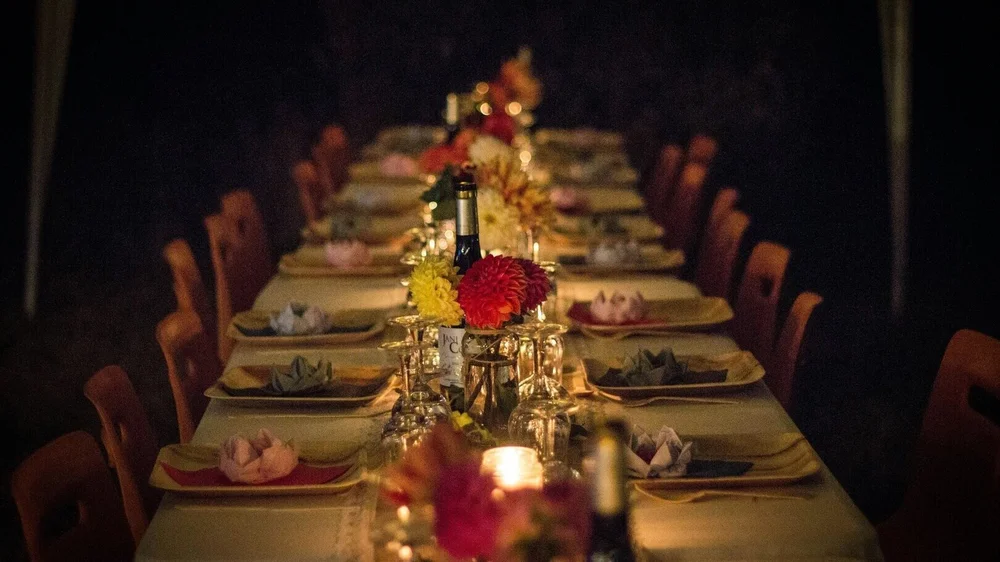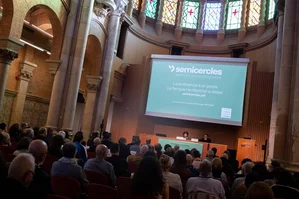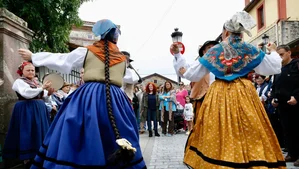Celebrating New Year’s Eve in Spain: Traditional Recipes and Festive Customs

As the clock ticks down to the final moments of 2024, Spain is gearing up to welcome the new year with its unique and vibrant traditions. For expats living in Spain, integrating into these customs can be a delightful way to experience the country's rich cultural heritage.
The 12 Grapes of Luck
One of the most iconic Spanish New Year’s Eve traditions is the eating of "las doce uvas de la suerte" (the 12 lucky grapes). This custom, which dates back to 1909, involves consuming 12 grapes, one for each stroke of midnight, to ensure good luck for each month of the upcoming year. This tradition originated as a creative marketing strategy to deal with a surplus grape harvest in the Alicante region but has since become a beloved national custom. Families gather around TVs, often watching the countdown from Madrid’s Puerta del Sol, and follow the chimes to eat their grapes in time[2][3][4].
Festive Foods and Recipes
Spanish New Year’s Eve celebrations are not just about the grapes; they are also a time for delicious and traditional foods. Here are some ideas for an unforgettable Nochevieja feast:
Appetizers: Pintxo de Tortilla con Queso y Pimientos
Start your evening with a classic Spanish tapas dish, "Pintxo de Tortilla con Queso y Pimientos" (Tortilla Pincho with Cheese and Peppers). This recipe, popularized by regions like Cádiz, combines the richness of Spanish omelette with the creaminess of cheese and the sweetness of peppers. It's an easy and flavorful way to kick off your celebrations[1].
Main Course: Traditional Spanish Feasts
For the main course, consider traditional Spanish dishes such as roast lamb or seafood platters, which are staples of Spanish Christmas Eve feasts but also enjoyed on New Year’s Eve. These hearty meals are often accompanied by sides like turrón, the beloved almond nougat, and other local delicacies[4].
Desserts: Polvorones and Roscón de Reyes
No Spanish celebration is complete without its sweet treats. "Polvorones," crumbly almond cookies, and "Roscón de Reyes," a festive cake traditionally eaten on Epiphany but often enjoyed earlier, are must-haves. The Roscón de Reyes contains hidden surprises like a figurine or a bean, adding a fun element to the dessert[4].
Other Festive Customs
Lucky Underwear
In addition to the grape-eating tradition, Spaniards also observe the custom of wearing lucky underwear. Red underwear is believed to bring love and passion, while yellow underwear symbolizes wealth and prosperity. This playful tradition adds a light-hearted touch to the celebrations[4].
Día de los Santos Inocentes
Before New Year’s Eve, Spain celebrates "Día de los Santos Inocentes" on December 28, which is akin to April Fool’s Day. This day is filled with pranks and jokes, even in newspapers, adding to the festive atmosphere leading up to the new year[4].
Celebrations Across Spain
Cities like Madrid and Barcelona host lively New Year’s Eve celebrations. Puerta del Sol in Madrid is the epicenter of these festivities, with fireworks lighting up the sky and streets filled with energy until the early hours. These public celebrations offer a unique and memorable experience for both locals and expats alike[2][4].
As you prepare to ring in the new year in Spain, embracing these traditions will make your celebration even more special. Whether you're enjoying a family feast, trying to eat 12 grapes in 12 seconds, or wearing lucky underwear, you'll be fully immersed in the vibrant culture of this beautiful country. ¡Feliz Año Nuevo
Related Stories

Plataforma per la Llengua Highlights the Bond Between Language and Identity
Plataforma per la Llengua champions the Catalan language as key to identity in Catalonia, countering threats to the region's linguistic heritage.

Community Honors Rural Women on International Day of Rural Women
Cabezón de la Sal honors rural women with "Sembrando futuro" theme on International Day of Rural Women, celebrating their pivotal role in community and agriculture.

Traditional Nocturnal Ascent to Peña Cabarga Returns
Cantabria's cherished nocturnal hike, "Subida Nocturna a Peña Cabarga," returns this October, offering a unique journey through stunning landscapes under the stars.

New Edition of the Ruta del Misterio: Unveiling Paranormal Phenomena in Torrelavega
Torrelavega's Ruta del Misterio returns this October, promising a thrilling exploration of the paranormal across 10 enigmatic stops.

Horoscope Insights for Expats in Spain: Sunday, October 20, 2024
Expats in Spain, especially Scorpios, may face relationship challenges on October 20, 2024. Tips on navigating social circles and romantic friction included.